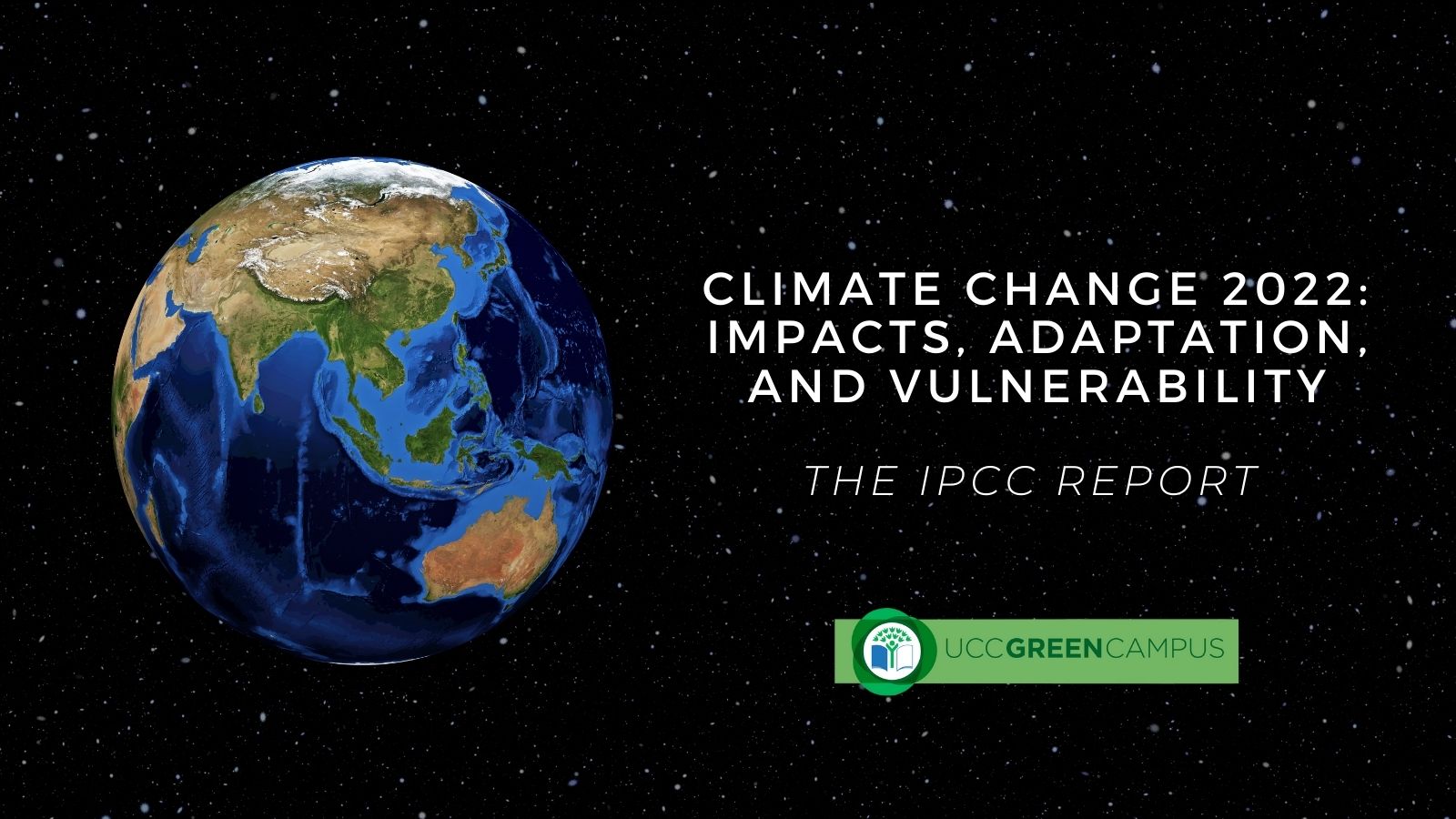- Home
- About
- Student Led
- Research Informed
- Practice Focused
- Resources
- News
- Green Campus Podcasts
- Case Studies
- Green Labs Community
News
Climate Change 2022: Impacts, Adaptation, and Vulnerability The IPCC Report

The IPCC released their latest climate report ‘Climate Change 2022: Impacts, Adaptation and Vulnerability’ on the 28th of February 2022.
This latest report is the contribution of the Working Group II to the IPCC Sixth Assessment Report[1]. It assesses the impacts of climate change with a strong focus on the interactions between biodiversity populations, our ecosystems, and human communities. It also evaluates the climate vulnerabilities of natural and human systems and offers solutions for the future.
The main findings of the report include the following:
- Anthropogenic climate change has caused widespread loss and damage to our natural systems and communities all over the world.
- Vulnerability to the effects of climate change varies significantly within and amongst regions and is driven by socioeconomic factors, inequality patterns born from colonisation and governance, and unsustainable land and ocean use.
- The magnitude and rate of climate change depend on the level of global action. Losses and damages can be reduced if we take action today.
- Climate problems are becoming increasingly more complex and difficult to solve.
- Adaptation efforts are occurring but they are unevenly distributed.
- There are feasible and effective adaptation options available to us that will reduce the risk of climate change to people and our planet.
- The limits to adaptation can be overcome by addressing a number of issues (such as lack of financial resources, policy constraints, and governance issues).
- Maladaptation can be avoided by implementing flexible, long-term, and inclusive adaptation actions.
- Political commitment and follow-through are critical to implementing and accelerating climate action.
- The need for climate resilience development action is more urgent than previously assessed in AR5.
- Partnership with marginalised and vulnerable groups is key to climate resilience development.
This report is simultaneously a call to action and a reality check. The world we live in today will not be the same in 10 or 20 years. The science is clear and the solutions are clear. There are natural laws that we should not break, and while this report communicates the realities of climate change, it offers us a message of hope rather than one of climate doom.
This report highlights that while some climate action is happening, it is not happening at a rapid enough rate and action is not evenly distributed across our world. It’s plain to see that there are significant implementation gaps in relation to climate mitigation and adaptation. Many currently lack an in-depth understanding of climate change. This education gap must be urgently addressed and the media will play a central role in this solution. Our policymakers must have comprehensive knowledge of the ever-growing climate catastrophe if effective solutions are to be designed and implemented.
The need for unified action is clear. Not a single person, community, or country can solve this crisis alone. This is a collective problem that requires a collective solution. We must mobilise, and individuals can play a central role in the fight against climate change through the choices and actions we make. We can engage with our governance systems, express our priorities to our political representatives, and demand action. However, there is only so much an individual can do and our policymakers must lead the way in the fight against climate change.
We cannot take a linear approach to the climate crisis and climate justice must be central in our actions. Local and indigenous knowledge is key to developing effective climate solutions. We will need to continually monitor our climate adaptation and mitigation actions to ensure that we implement the most effective initiatives whilst protecting those most vulnerable to climate change.
All of us need to act if we want to create a just and sustainable society and future for all.
‘The cumulative scientific evidence is unequivocal: Climate change is a threat to human well-being and planetary health. Any further delay in concerted anticipatory global action on adaptation and mitigation will miss a brief and rapidly closing window of opportunity to secure a liveable and sustainable future for all.’[2]
Read the Summary for Policymakers here.
Read the Technical Summary here.
Read the Full Report here.
[1] The IPCC is currently in its sixth assessment cycle during which the 6th Assessment Report will be produced alongside contributions from 3 Working Groups, a Synthesis Report, 3 Special Reports and a refinement of the latest Methodology Report.
[2] Climate Change 2022: Impacts, Adaptation and Vulnerability, SPM.D.5.3.
